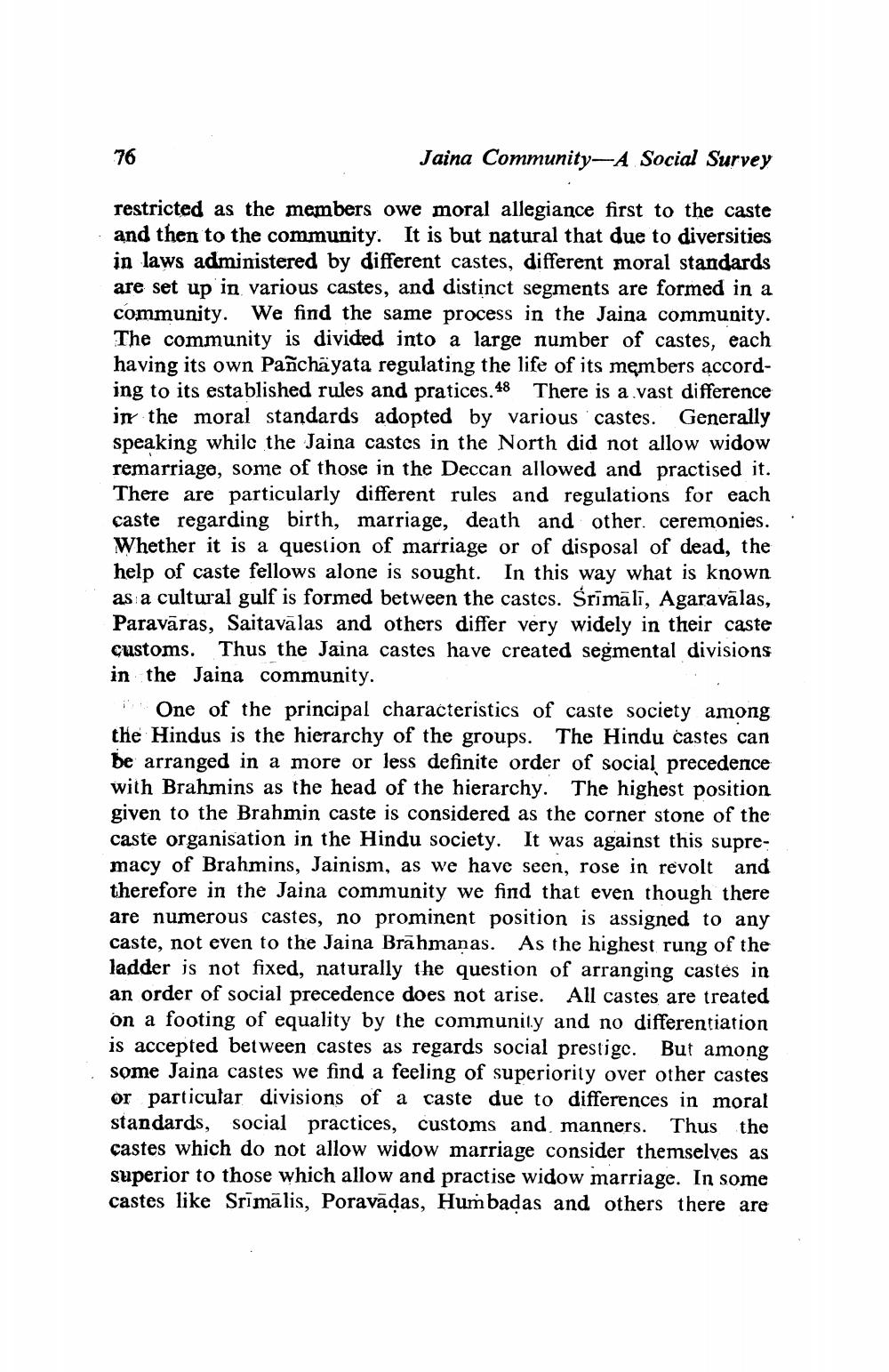________________
76
Jaina Community-A Social Survey
restricted as the members owe moral allegiance first to the caste and then to the community. It is but natural that due to diversities in laws administered by different castes, different moral standards are set up in various castes, and distinct segments are formed in a community. We find the same process in the Jaina community. The community is divided into a large number of castes, each having its own Panchayata regulating the life of its members according to its established rules and pratices.48 There is a vast difference in the moral standards adopted by various castes. Generally speaking while the Jaina castes in the North did not allow widow remarriage, some of those in the Deccan allowed and practised it. There are particularly different rules and regulations for each caste regarding birth, marriage, death and other. ceremonies. Whether it is a question of marriage or of disposal of dead, the help of caste fellows alone is sought. In this way what is known as a cultural gulf is formed between the castes. Srimali, Agaravālas, Paravāras, Saitavālas and others differ very widely in their caste customs. Thus the Jaina castes have created segmental divisions in the Jaina community.
One of the principal characteristics of caste society among the Hindus is the hierarchy of the groups. The Hindu castes can be arranged in a more or less definite order of social precedence with Brahmins as the head of the hierarchy. The highest position given to the Brahmin caste is considered as the corner stone of the caste organisation in the Hindu society. It was against this supremacy of Brahmins, Jainism, as we have seen, rose in revolt and therefore in the Jaina community we find that even though there are numerous castes, no prominent position is assigned to any caste, not even to the Jaina Brahmanas. As the highest rung of the ladder is not fixed, naturally the question of arranging castes in an order of social precedence does not arise. All castes are treated on a footing of equality by the community and no differentiation is accepted between castes as regards social prestigc. But among some Jaina castes we find a feeling of superiority over other castes or particular divisions of a caste due to differences in moral standards, social practices, customs and manners. Thus the castes which do not allow widow marriage consider themselves as superior to those which allow and practise widow marriage. In some castes like Srimālis, Poravadas, Humbadas and others there are




